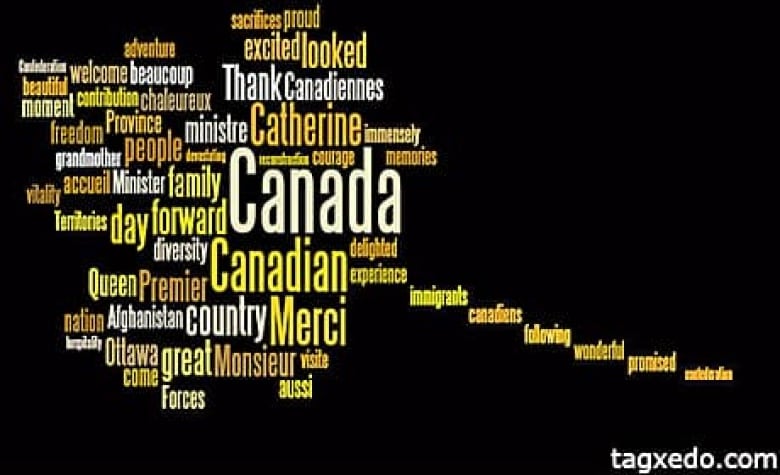Analyzing the king-to-be's speech
William's public addresses were very specific and very audience focused

Each time Prince William took to the podium during his cross-Canada visit, the strategy seemed the same: Be direct and focus on the local audience, even if all those TV cameras could beam the message to the larger world.
Of course, TV cameras have been focused on William from the moment his parents carried him out of St. Mary's Hospital in London, just over 29 years ago. But until recently anyway he has not been someone who has made many public pronouncements.
'With each speech, he was very audience-focused.' —Melanie Novis
During the Canadian visit, William spoke publicly on several occasions and appeared to follow a similar pattern every time.
"With each speech, he was very audience-focused," says Melanie Novis, president of Corporate Speech Consultants in Toronto. "Each speech was tailored to the area and to the people he was speaking to."
Sometimes that tailoring meant shifting languages. One speech in Quebec was entirely in French — a language that seemed to present at least a minor challenge to the prince, who good-naturedly appealed for patience with his accent. In the Northwest Territories, he tried his hand at a couple of aboriginal greetings.
Ciara Hunt, a royal expert and a commentator for CBC during the royal visit, says each of William's speeches was "strategically focused."
'Emotional, heartfelt speech'
For example, on Canada Day, in Ottawa, the speech touched on his grandparents, but also introduced his wife, Kate, to Canada, and mentioned her ties to Alberta through her grandfather, who trained there as a pilot during the Second World War.
"That was a very emotional, heartfelt speech where he spoke of how they both wanted to come here for a long time because of her grandfather," said Hunt. "You could actually see Catherine was very touched by that."
That speech was made on a day that also had personal significance for William. July 1 would have been the 50th birthday of his mother, Diana, the late Princess of Wales. He didn't mention the anniversary, and Hunt hadn't expected him to. But she expected it would be on his mind.
"He did speak a lot about families, about bringing them together, the armed forces and their families and how they must be dealing with that," said Hunt. "You could tell how he had a focus on family but at the same time he didn't address an issue that was private to him."
Novis, who teaches at the University of Toronto and whose company trained speakers from the organizing committee for the 2010 Winter Olympics in Vancouver, considers William to be a good communicator and a "very authentic" speaker.
"I think he's a young man who is very comfortable with himself and the times that he lives in," she said. "He seems to reflect an openmindedness and a very contemporary sensibility."
More eye contact
There were no stuffy words in the speeches, and they didn't go on too long. "The language was pitched to ordinary folk," says Novis. "It wasn't an elevated tone."
Personal anecdotes, whether referring to his grandmother (the Queen) or Kate's grandfather, also helped the addresses.
"Personal anecdotes always work very well in speeches," says Novis.
Overall, William left the impression of being very complimentary to anyone he spoke to, she said. "I thought he became more confident as he went along," reading the audience better, and pausing when they clapped.
If Novis had any suggestions for the prince as he continues his royal speaking duties, it would be to practise reading from texts and increase the length of time he keeps his eyes on his audience, making that direct connection.
"Going forward, I'm sure he will become much more masterful."
The image below shows about 60 of the most frequently used words from William's speeches in Ottawa, Quebec City, Charlottetown, Yellowknife and Calgary. The more often a word was used, the larger it appears in the image. Many common words do not appear. The word cloud was created using tagxedo.com
The largest word, Canada, appears 26 times. Other frequent words were Canadian (12 times), merci (10 times) and Catherine (eight).


